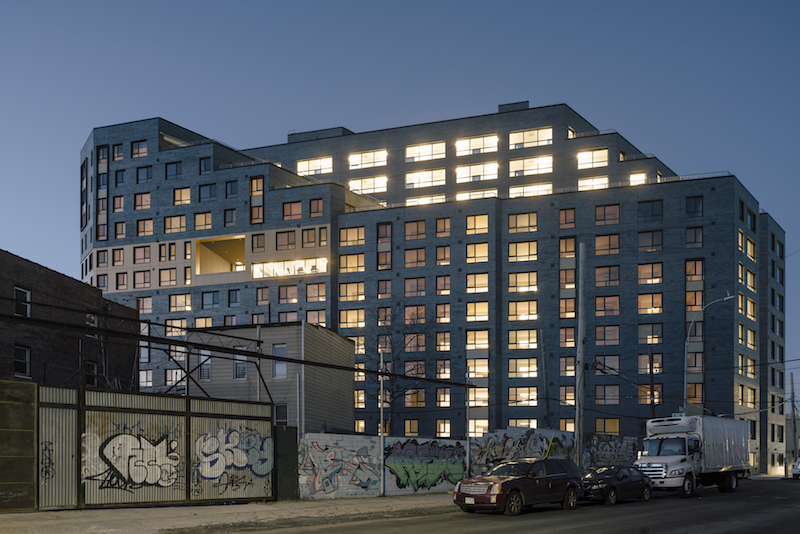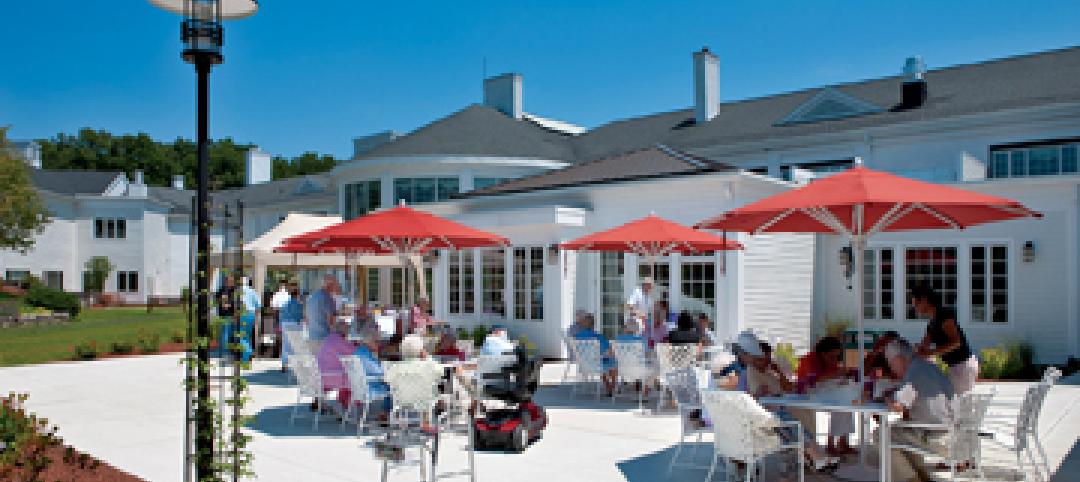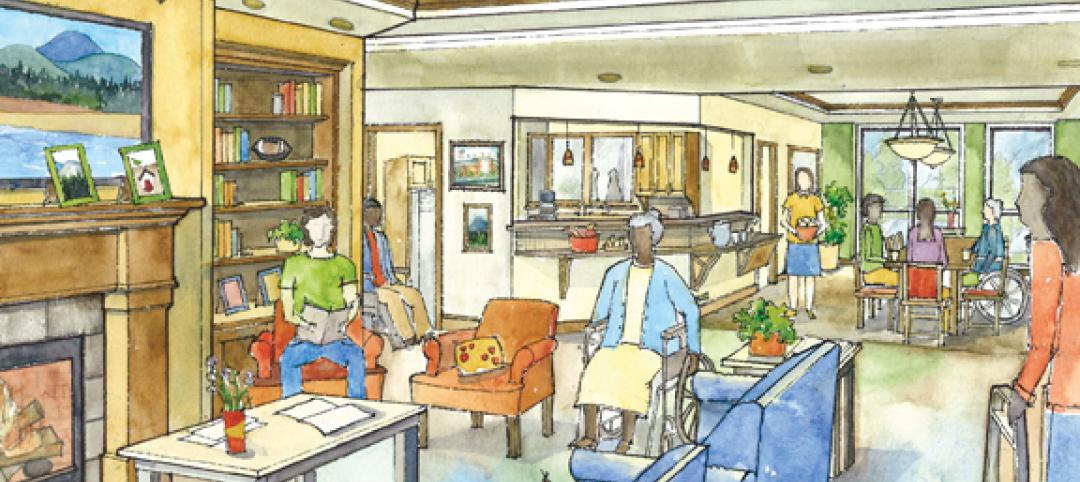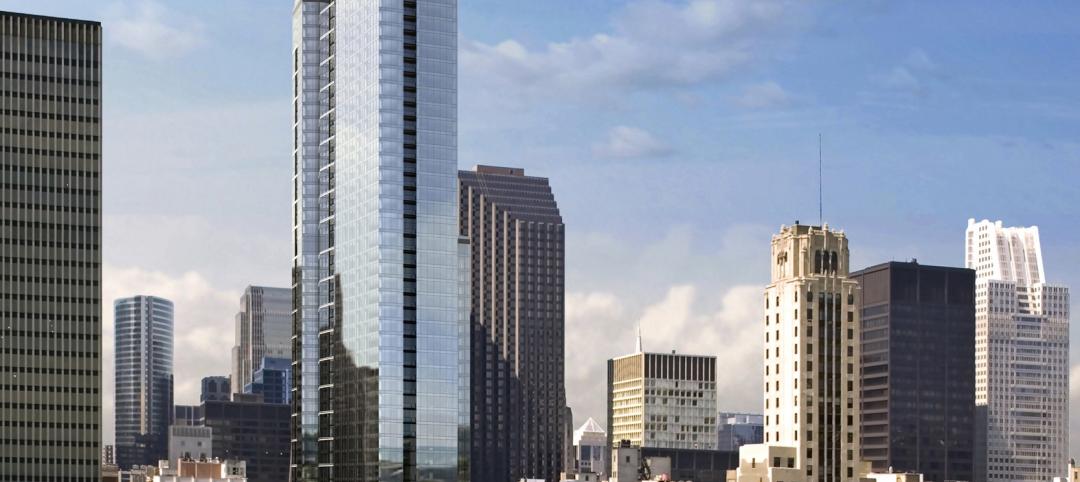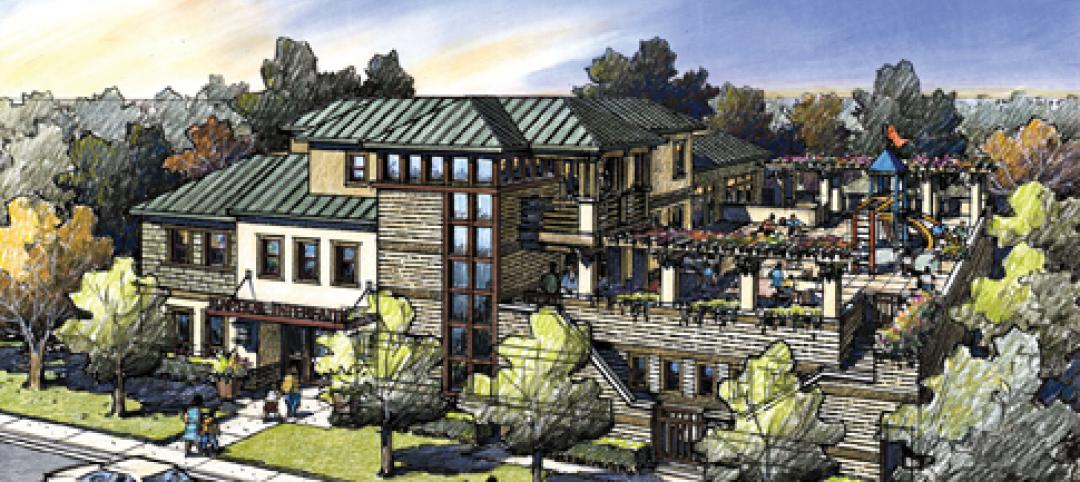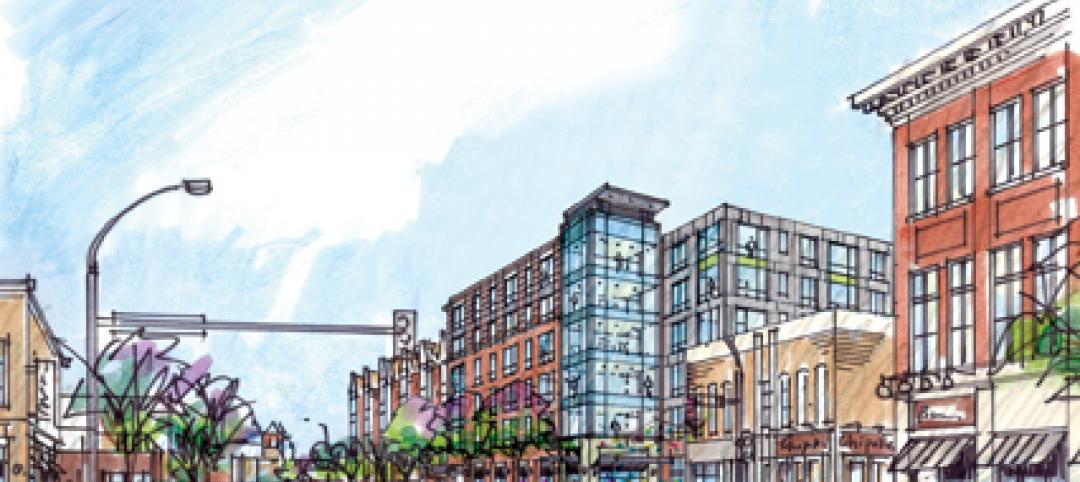Magnusson Architecture + Planning recently completed work on MLK Plaza, a 13-story, 167-unit affordable residential building in the Bronx. The development includes 25 studios, 57 one-bedroom units, 60 two-bedroom units, and 24 three-bedroom units. 100% of the apartments will be affordable to very low-income renters.
MLK Plaza residents will have access to recreation and community rooms, a rear patio, and a gym on the seventh floor with an adjacent outdoor terrace. The gym and terrace are part of active design interventions to encourage physical health. Their location on the seventh floor is midway between the top and bottom floors to encourage residents to use the stairs. The stairwells also incorporate active design principles such as double height landings and windows for natural light and views.
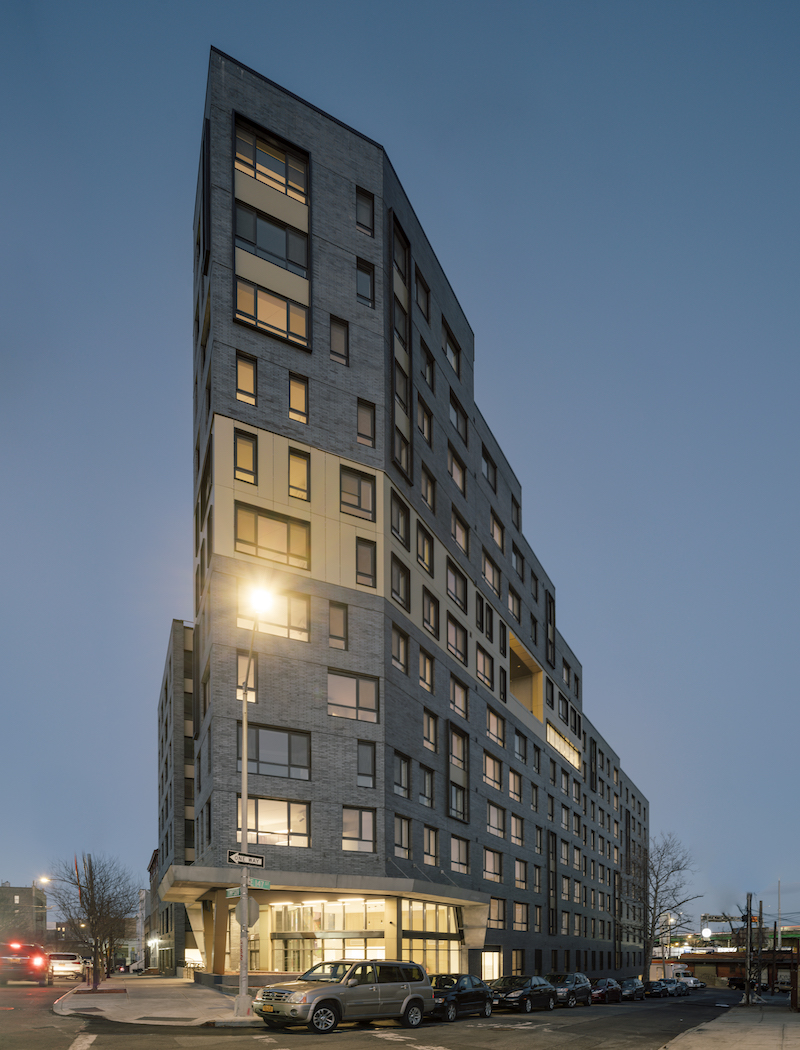 Photo credit: Miguel de Guzman / ImagenSubliminal.
Photo credit: Miguel de Guzman / ImagenSubliminal.
See Also: Sweden’s tallest timber building is open for business
The exterior features dark gray brick as a nod to the neighborhood’s industrial past. Metal panels with a gold hue were also used on the exterior to provide a bright counterpoint to the brick. A fully-glazed double-height corner lobby is framed by diagonal columns. The lobby provides natural daylight to the ground floor during the day and creates street-level illumination at night. One of the lobby’s walls includes a mural of MLK.
The development was designed to achieve LEED Platinum.
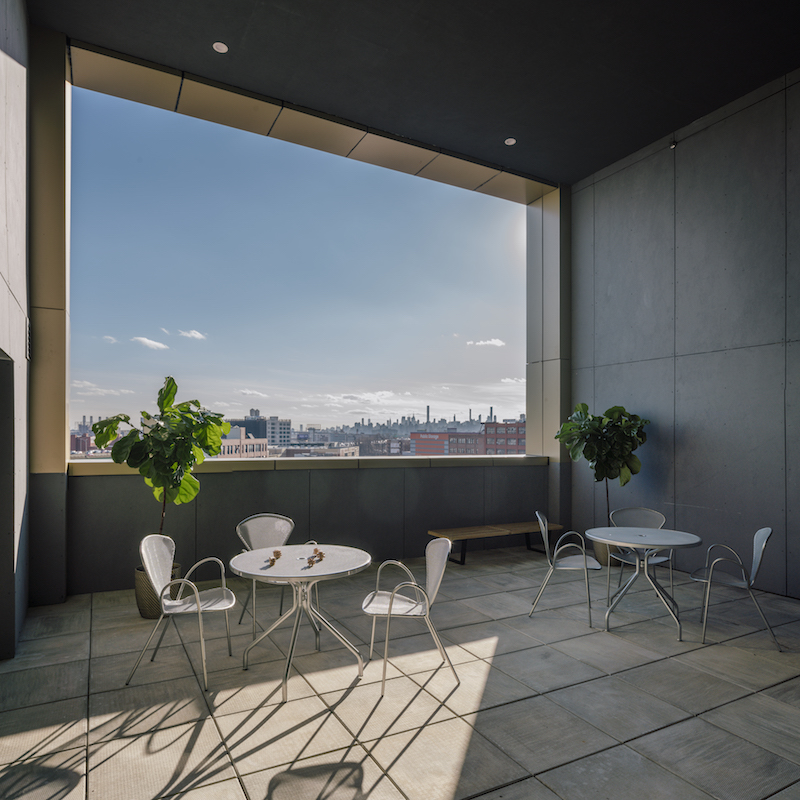 Photo credit: Miguel de Guzman / ImagenSubliminal.
Photo credit: Miguel de Guzman / ImagenSubliminal.
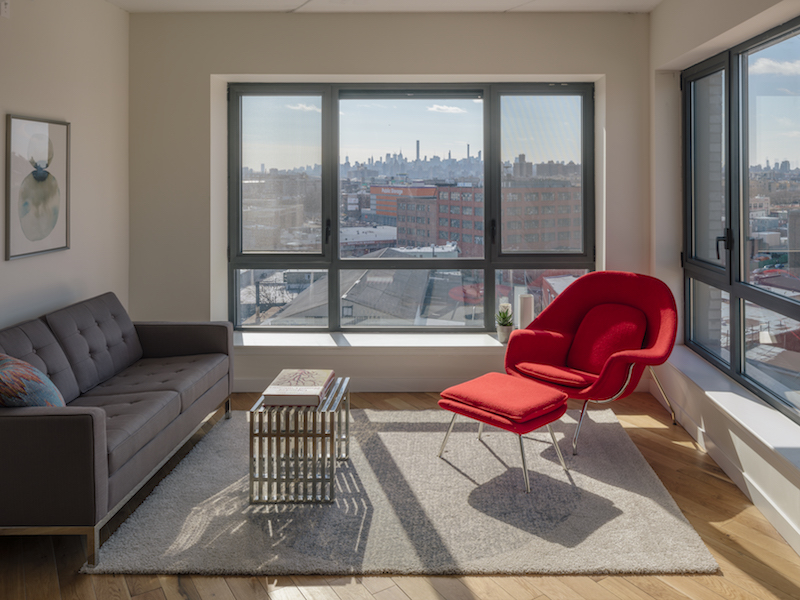 Photo credit: Miguel de Guzman / ImagenSubliminal.
Photo credit: Miguel de Guzman / ImagenSubliminal.
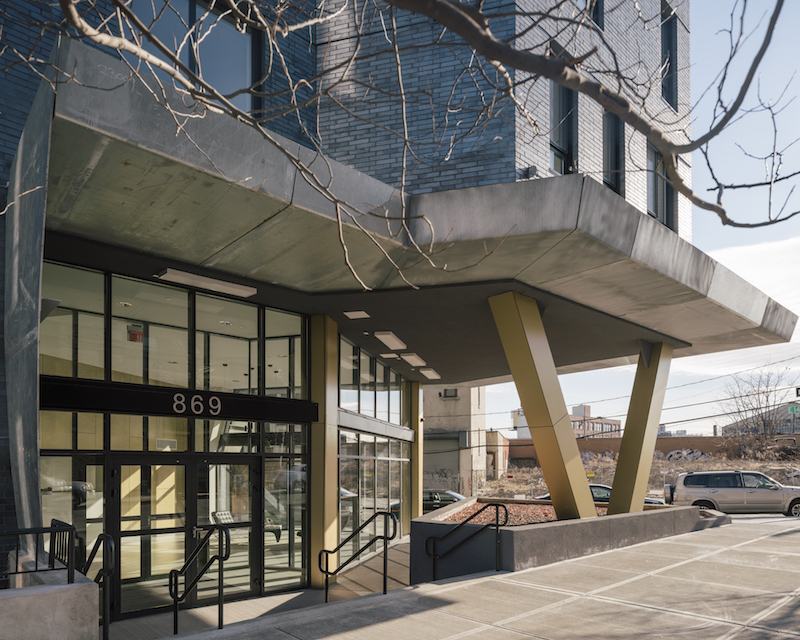 Photo credit: Miguel de Guzman / ImagenSubliminal.
Photo credit: Miguel de Guzman / ImagenSubliminal.
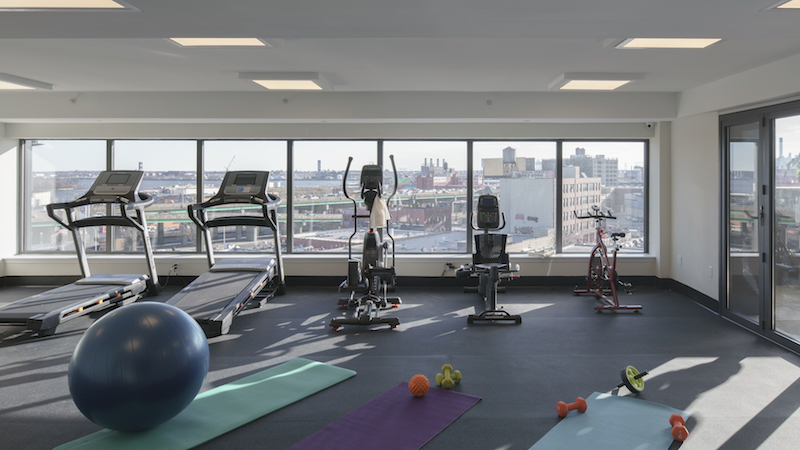 Photo credit: Miguel de Guzman / ImagenSubliminal.
Photo credit: Miguel de Guzman / ImagenSubliminal.
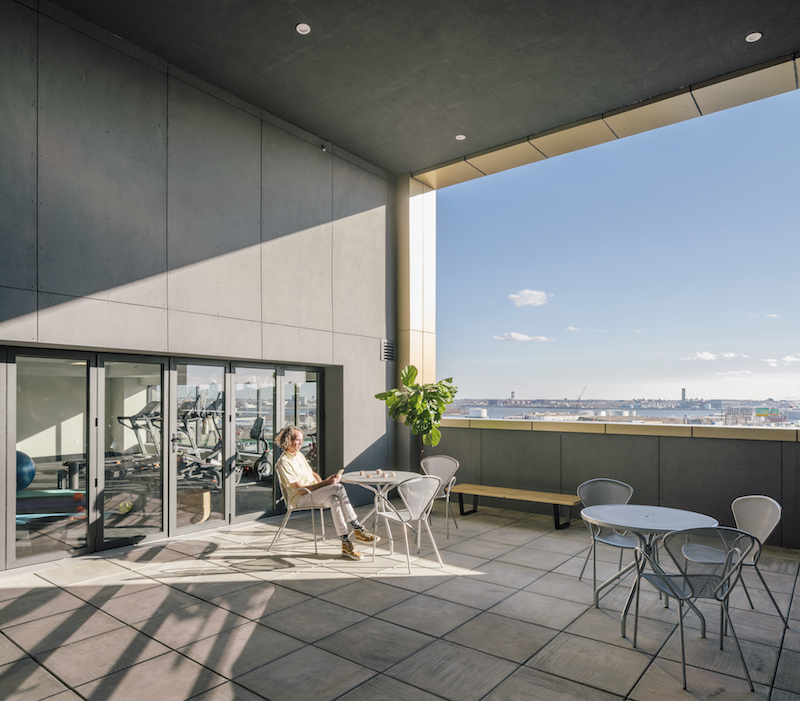 Photo credit: Miguel de Guzman / ImagenSubliminal.
Photo credit: Miguel de Guzman / ImagenSubliminal.
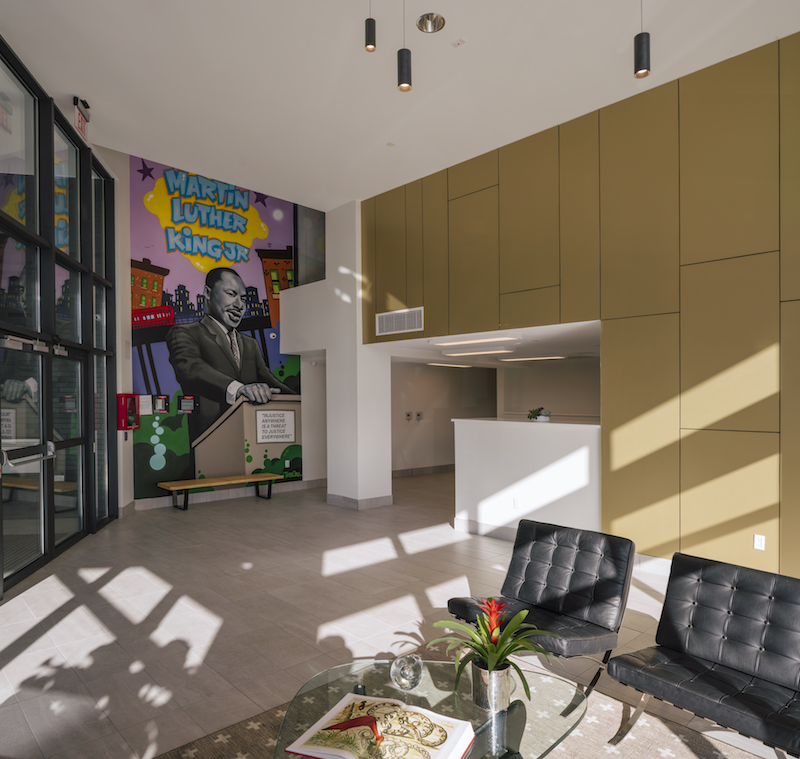 Photo credit: Miguel de Guzman / ImagenSubliminal.
Photo credit: Miguel de Guzman / ImagenSubliminal.
Related Stories
| Mar 22, 2011
Mayor Bloomberg unveils plans for New York City’s largest new affordable housing complex since the ’70s
Plans for Hunter’s Point South, the largest new affordable housing complex to be built in New York City since the 1970s, include new residences for 5,000 families, with more than 900 in this first phase. A development team consisting of Phipps Houses, Related Companies, and Monadnock Construction has been selected to build the residential portion of the first phase of the Queens waterfront complex, which includes two mixed-use buildings comprising more than 900 housing units and roughly 20,000 square feet of new retail space.
| Mar 17, 2011
Perkins Eastman launches The Green House prototype design package
Design and architecture firm Perkins Eastman is pleased to join The Green House project and NCB Capital Impact in announcing the launch of The Green House Prototype Design Package. The Prototype will help providers develop small home senior living communities with greater efficiency and cost savings—all to the standards of care developed by The Green House project.
| Mar 11, 2011
Renovation energizes retirement community in Massachusetts
The 12-year-old Edgewood Retirement Community in Andover, Mass., underwent a major 40,000-sf expansion and renovation that added 60 patient care beds in the long-term care unit, a new 17,000-sf, 40-bed cognitive impairment unit, and an 80-seat informal dining bistro.
| Mar 11, 2011
Mixed-income retirement community in Maryland based on holistic care
The Green House Residences at Stadium Place in Waverly, Md., is a five-story, 40,600-sf, mixed-income retirement community based on a holistic continuum of care concept developed by Dr. Bill Thomas. Each of the four residential floors houses a self-contained home for 12 residents that includes 12 bedrooms/baths organized around a common living/social area called the “hearth,” which includes a kitchen, living room with fireplace, and dining area.
| Mar 11, 2011
Texas A&M mixed-use community will focus on green living
HOK, Realty Appreciation, and Texas A&M University are working on the Urban Living Laboratory, a 1.2-million-sf mixed-use project owned by the university. The five-phase, live-work-play project will include offices, retail, multifamily apartments, and two hotels.
| Mar 1, 2011
How to make rentals more attractive as the American dream evolves, adapts
Roger K. Lewis, architect and professor emeritus of architecture at the University of Maryland, writes in the Washington Post about the rising market demand for rental housing and how Building Teams can make these properties a desirable choice for consumer, not just an economically prudent and necessary one.
| Feb 15, 2011
New Orleans' rebuilt public housing architecture gets mixed reviews
The architecture of New Orleans’ new public housing is awash with optimism about how urban-design will improve residents' lives—but the changes are based on the idealism of an earlier era that’s being erased and revised.
| Feb 11, 2011
Chicago high-rise mixes condos with classrooms for Art Institute students
The Legacy at Millennium Park is a 72-story, mixed-use complex that rises high above Chicago’s Michigan Avenue. The glass tower, designed by Solomon Cordwell Buenz, is mostly residential, but also includes 41,000 sf of classroom space for the School of the Art Institute of Chicago and another 7,400 sf of retail space. The building’s 355 one-, two-, three-, and four-bedroom condominiums range from 875 sf to 9,300 sf, and there are seven levels of parking. Sky patios on the 15th, 42nd, and 60th floors give owners outdoor access and views of Lake Michigan.
| Feb 11, 2011
Sustainable community center to serve Angelinos in need
Harbor Interfaith Services, a nonprofit serving the homeless and working poor in the Harbor Area and South Bay communities of Los Angeles, engaged Withee Malcolm Architects to design a new 15,000-sf family resource center. The architects, who are working pro bono for the initial phase, created a family-centered design that consolidates all programs into a single building. The new three-story space will house a resource center, food pantry, nursery and pre-school, and administrative offices, plus indoor and outdoor play spaces and underground parking. The building’s scale and setbacks will help it blend with its residential neighbors, while its low-flow fixtures, low-VOC and recycled materials, and energy-efficient mechanical equipment and appliances will help it earn LEED certification.
| Feb 11, 2011
Apartment complex caters to University of Minnesota students
Twin Cities firm Elness Swenson Graham Architects designed the new Stadium Village Flats, in the University of Minnesota’s East Bank Campus, with students in mind. The $30 million, six-story residential/retail complex will include 120 furnished apartments with fitness rooms and lounges on each floor. More than 5,000 sf of first-floor retail space and two levels of below-ground parking will complete the complex. Opus AE Group Inc., based in Minneapolis, will provide structural engineering services.


